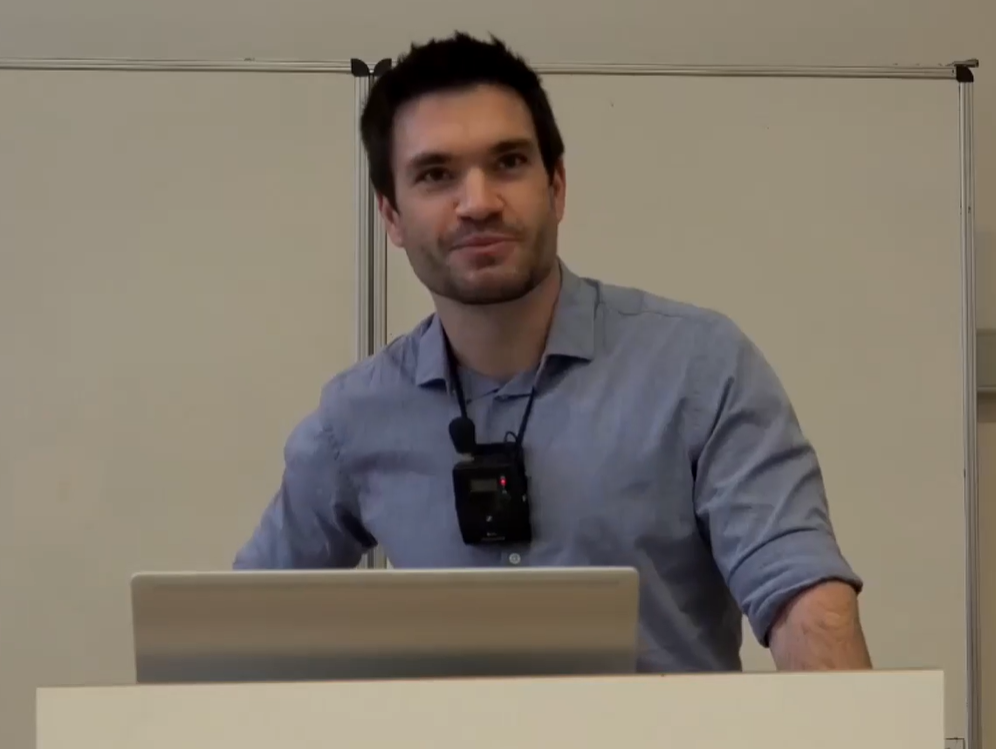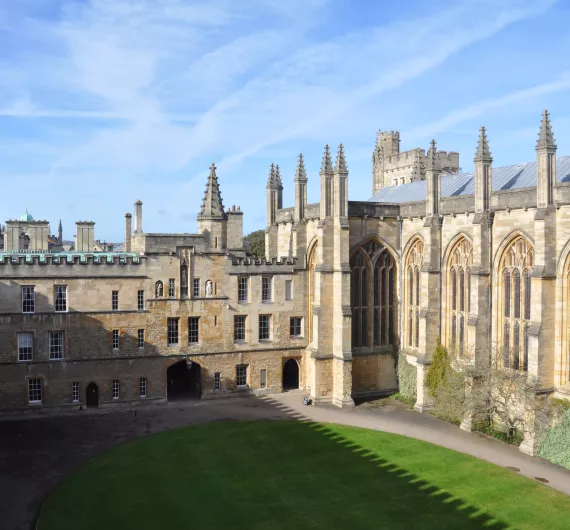Holocaust Memorial Day event
We held an event on Holocaust Memorial Day, remembering the victims of the Holocaust and all genocides.
Eliza Copland, President of the New College JSOC, wrote about her experience of the event.
'The event involved Jonathan Leader Maynard, an expert on the topic of genocide and mass killing giving an engaging talk to members of New College. It was fascinating to learn from him how certain ideologies can lead to atrocious events such as the Holocaust.
A highlight from this event was the opportunity for us to ask Jonathan questions and share our own view points. It was particularly impressive to see my friends and peers discussing points that Jonathan had raised and adding their own personal experiences. It was a fascinating event that marked an important date, from which everyone learnt a lot.'
Jonathan Leader Maynard is a lecturer in International Politics at King’s College, and a former member of New College, where he was our Rank-Manning Fellow and then lecturer in International Relations.
He is a leading academic specialist in genocide, and OUP has just published his book Ideology and Mass Killing.

Jonathan kindly summarised his talk for us below.
'Speaking today on Holocaust Memorial Day has a personal significance for me. Obviously, it is an honour to be asked back, as a former fellow of New College, to speak today. As a genocide and conflict scholar I also firmly believe that the proper study and memory of the Holocaust is essential if we are to understand other cases of genocide and mass killing in our contemporary age. But speaking on Holocaust Memorial Day is also significant for me because, had I not been fortunate enough to be born in Britain in the late 20th Century, and had instead been a resident of Germany in the interwar period, I would have been classified as a ‘Mischling’ of mixed ‘Aryan’ and ‘Jewish’ ancestry under the 1935 Nuremberg laws. After the Wansee Conference of January 1942, had I not been able to flee German-occupied Europe, I would have been targeted for murder. Since this kind of targeted violence against civilians remains present in 21st Century world politics, it is a concern that public understanding of the Holocaust remains so incomplete, with increasing proportions of younger generations either denying the Holocaust or, more commonly, wrongly claiming that the number of Jews killed has been greatly exaggerated.
An overlapping puzzle connects these kinds of attitudes and the occurrence of the Holocaust itself. Why can large proportions of modern societies prove supportive, or at least indifferent, to false narratives about other (typically minority) groups, which often become a basis for denigration, discrimination, and violence? In early scholarship on the Holocaust and other genocides, scholars frequently explained this phenomenon through longstanding animosities or cleavage lines between groups, coupled with the political pathologies of certain totalitarian styles of politics. Yet this explanation is no longer widely accepted. In many societies, mass violence breaks out even in the absence of longstanding animosities between groups. Nor are such incidents limited to totalitarian regimes: they occur in more conventional autocratic and even democratic states too. Indeed, extremist ideologies are present in most societies – and it is not necessary for the vast bulk of the population to become strongly committed to such ideologies for extreme violence to occur. What matters most is the way extremist ideologies and movements can come to mobilise broader support from diverse constituencies (many of whom may not be fanatical believers) and gain influence within powerful social institutions such as the police, military, media and state bureaucracy. Typically, this happens in times of significant social crisis, if more moderate political forces are weak or fractured. Such dynamics were critical in the rise of the Nazis in Germany in the 1920s and 1930s, since the Nazis, it is worth remembering, never won an outright electoral majority in any free German election. But this perspective is also critical to understanding the relevance of the Holocaust, and the danger of mass violence, in today’s world. Extreme violence is a danger no society is wholly immune to, and the relatively moderate politics of the ‘silent majority’ is not a firm bulwark against extremism. Understanding that masses of ordinary people can become complicit in a extreme and even genocidal movement like the Nazis is one of the central lessons from the Holocaust for politics today. And it is a lesson that is more relevant now than ever, with the resurgence of forms of extremist politics in societies across the globe.'
Discover more about New College



